Internalised misogyny is the prejudiced behaviour women project upon themselves and other women. This manifests in statements that claim, “I am not like other girls” due to the need to cater to the male gaze. Projecting these misogynistic claims is a result of a gnawing fear of being perceived as weak or incapable due to one’s association with femininity.
As Harshita Narasimhan brilliantly writes in this 101, internalised misogyny has a restricted view of femininity and womanhood where, in order to be independent, a woman must subvert all traditional notions of womanhood and challenge the existence of “the other girl.” It deems womanhood as competition rather than collaboration, and overlooks the diversity and complexity in independent existence.
While internalised misogyny is pretty much the antithesis of feminism, it is, unfortunately, an obstacle that most feminists have to grapple with, due to the inherently patriarchal structure of our world. Women are socialised to believe that if we observe the rules of the patriarchy, its spaces will be kinder to us, or that we will be cared for. Years of growing up in subtly (and sometimes overtly) sexist spaces have dampened the joy in being a woman, but as I grow older, I am trying to reclaim the beauty of womanhood and truly acknowledge the privilege in coexisting with every other girl.
While internalised misogyny is pretty much the antithesis of feminism, it is, unfortunately, an obstacle that most feminists have to grapple with, due to the inherently patriarchal structure of our world. Women are socialised to believe that if we observe the rules of the patriarchy, its spaces will be kinder to us, or that we will be cared for.
So here’s six things internalised misogyny ruined and why we need to reclaim them.
1. Strong Female Friendships
From Taylor Swift’s You Belong With Me to Avril Lavigne’s Girlfriend, internalised misogyny has reproduced a toxic culture that pits women against each other, teaching us that we must compete for either male attention or to simply be better than one another. Magazines push the idea in “who wore it better?” spreads and breakup songs do it in their comparisons between the new girl and the ex.
The very idea that women can unconditionally support each other’s success and exist as mutually empowered individuals upsets the patriarchal hegemony of society. As a result, we are brought up to feel like the world is against us, that women are “catty” and they “stir drama”, when in reality, there is enough space for us to feel whole without tearing each other apart.
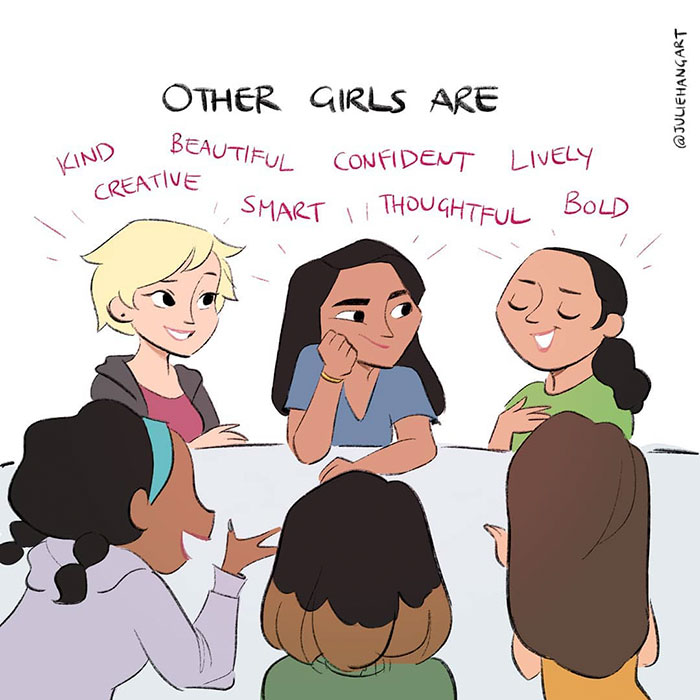
Strong and diverse female friendships that do not feel the need for male validation are real and beautiful, and it is such a shame that we’ve been told otherwise. Women supporting women has led to revolutionary support systems for survivors and safe spaces to explore one’s identity. Women empathise with each other because we live under the influences of a patriarchal society, and the power of our solidarity is unmatched.
2. Cooking
Growing up, I witnessed a stark division of labour in my household. Despite being a working professional, my mother and grandmother would be the ones planning our meals. The kitchen was their domain, and cooking, their duty. As I grew up, I always claimed that my career and professionalism would be my domain and refused to respond to the derogatory “go back to the kitchen” or “go make me a sandwich” comments that men with fragile egos insist on being “dark humour”.
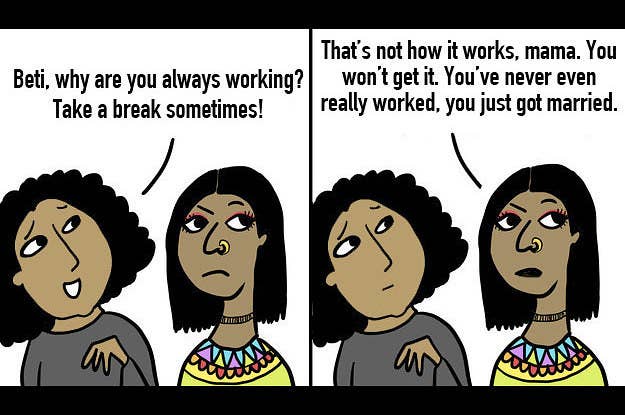
In her Times of India column, Rega Jha writes, “I’d just swallowed that patriarchal notion, folded into a common misconception of entry-level feminism, that one can consider themselves “independent” just by virtue of making money even while lacking the ability to make a basic meal.” And she’s right. My notion of empowerment catalysed my aversion to tasks that were considered a woman’s job.
Having moved away from home, I’ve come to the understanding that cooking is both empowering and enjoyable. My internalised aversion to cooking is something I’ve had to unpack, one packed lunch at a time. At the end of the day, cooking is a life skill, not a duty or a job. For my mother, it is the embodiment of her love for the family. For me, it is a task. Refusing to work in a kitchen is not feminist activism; it’s internalised misogyny. Choosing to cook for both skill and survival can be empowering, as long as we disassociate the gender roles that have been attached to it.
3. Feminism
Internalised misogyny ruined feminism. While this seems kind of obvious, the anti-feminism stance that many women take, stems from a place of deep-rooted aversion to all things feminine and it is both concerning and scary.
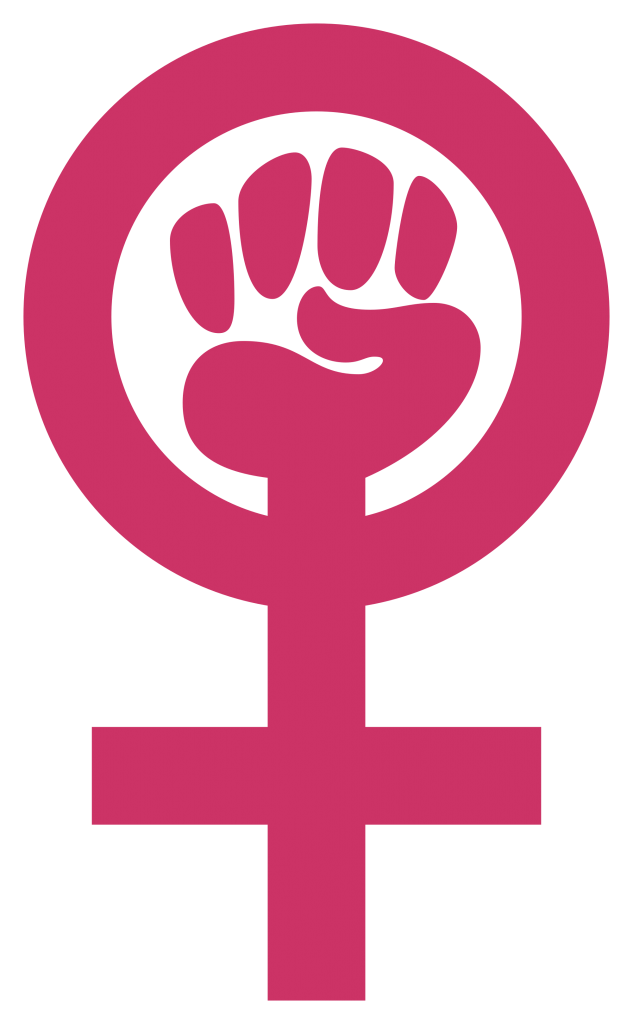
From celebrities to influencers, and probably somebody you know, women refuse to identify as feminists because they begin to perceive the movement as a man-hating mission that is promoting female supremacy. While it’s misinterpreting the F-Word itself or believing in “equalism”, pseudo-feminism stems from internalised misogyny. Being a woman and not identifying as a feminist is patriarchal propaganda that caters to the validation of bigoted, cishet men that want to excuse their misogyny.
As Harshita Malik wrote in her response to Divyangana Trivedi’s anti-feminist viral video, disagreeing with modern feminism does not mean promoting equality; it means missing the point of the movement as a whole. Challenging one’s internalised notions against feminism begins with understanding the power of womanhood and solidarity.
You are not an equalist, you are a feminist. It’s time to ask yourself why you refuse to identify as such and recognise that the repulsion is a result of patriarchal propaganda.
4. Fashion
Clothing is a dichotomous facet of gender presentation. For some, clothing has no gender while for others, gendered clothing is essential in challenging gender dysphoria. And all these interpretations of fashion should be validated and celebrated. However, shaming women that choose to show off more skin or others that choose to cover up is misogynistic. The assumption that women that choose to wear more “revealing” clothing are doing it for male validation is both unfounded and incorrect.
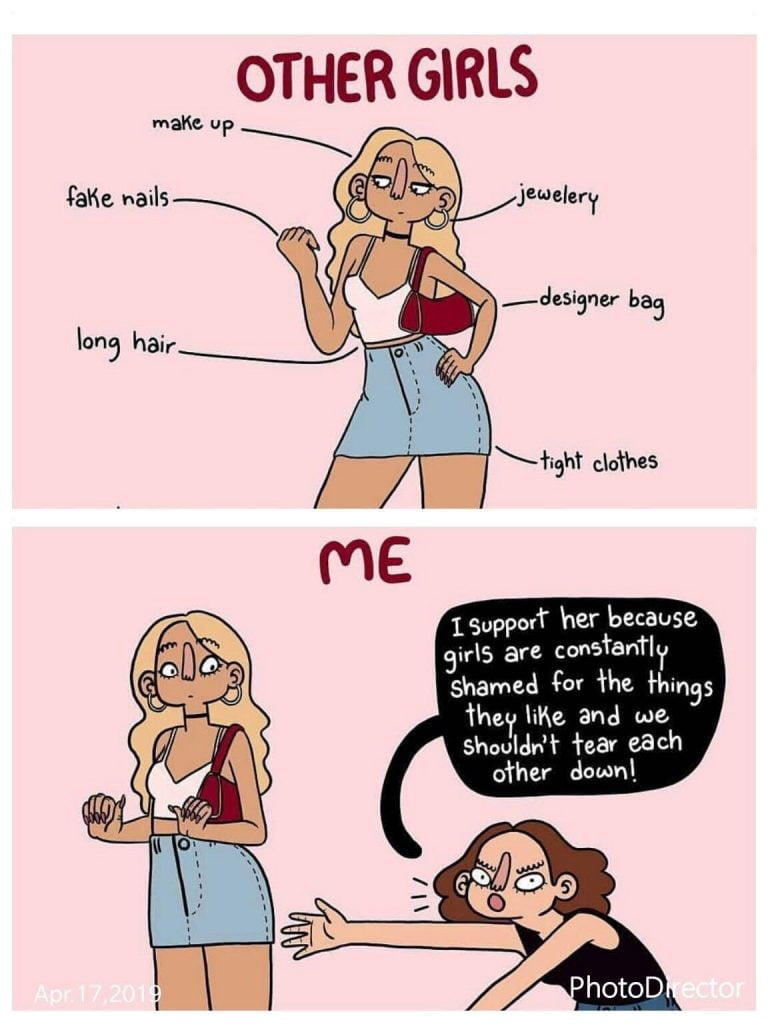
Slutshaming often stems from girl-on-girl hate that is deeply rooted in internalised misogyny. Reclaiming fashion depends upon the mutual realisation that wearing a tight dress doesn’t make you a whore, neither does wearing a loose salwar-kameez make you a prude. There is no reason that frilly dresses and skirts should be inferior to pantsuits, they’re all powerful because the women in them are powerful.
Also read: How I Internalised Misogyny As A ‘Teacher’s Pet’ | #ChalkfullBullying
5. Lesbianism and WLW relationships
Compulsory heterosexuality is an extension of heteronormativity – it stems from the premise that a patriarchal society pushes heterosexuality as the “normal or default” sexual orientation. While CompHet affects people of all genders, it’s mostly been studied as something that affects women. This is because compulsory heterosexuality easily ties in with the misogyny that causes women’s identities to be defined by their relationships with men.
Partially synonymous with internalised misogyny, it is the voice that invalidates lesbian attraction and is often the reason many women come out as bisexual before they are comfortable identifying as lesbian. Feeling as if your attraction to women is fake? That may well be the product of a patriarchal society.
6. The Colour Pink
Associating colours with the gender binary will always be a bizarre concept. The belief that a colour can hold connotations regarding one’s sexuality, gender presentation, and even attributes of personality is based in highly patriarchal notions and frankly, quite presumptuous. Even so, the colour pink has been associated with femininity or used as a marker to differentiate girls from boys.

However, as it grew in popularity, pink also acquired connotations of being “too girly” or “too feminine.” For girls who resented being labeled as weak or fragile, not wearing pink became a sign of rebellion. Pink was for “girly-girls” and black was for badasses.
And this is true not only for women. Male-identifying folks often stray away from pink due to the fear of being labelled as femme-presenting or bullied. This is as much toxic masculinity as it is internalised misogyny. While there isn’t anything inherently wrong in not favouring a colour, it is valuable to consider the internalised coded definitions of gender that may have put you off pink.
Also read: How I Learnt To Unlearn My Internalised Misogyny
While the enemy of feminism is the patriarchy, patriarchal ideologies are deeply rooted in people of all gender identities. Feminism is about actively confronting your biases to make room for inclusive, accepting, and diverse perspectives on womanhood.
This is by no means an exhaustive or representative list. Suggestions to add to this list are welcome in the comments section.
Featured Image Source: Cutacut
About the author(s)
Aastha Jani was born in Surat, Gujarat and raised in Dubai, UAE. She is passionate about intersectional representation in popular media, dismantling gender roles, and confronting internalised misogyny. Aastha can usually be found binge-watching TV, baking brownies, or chasing a sunset.
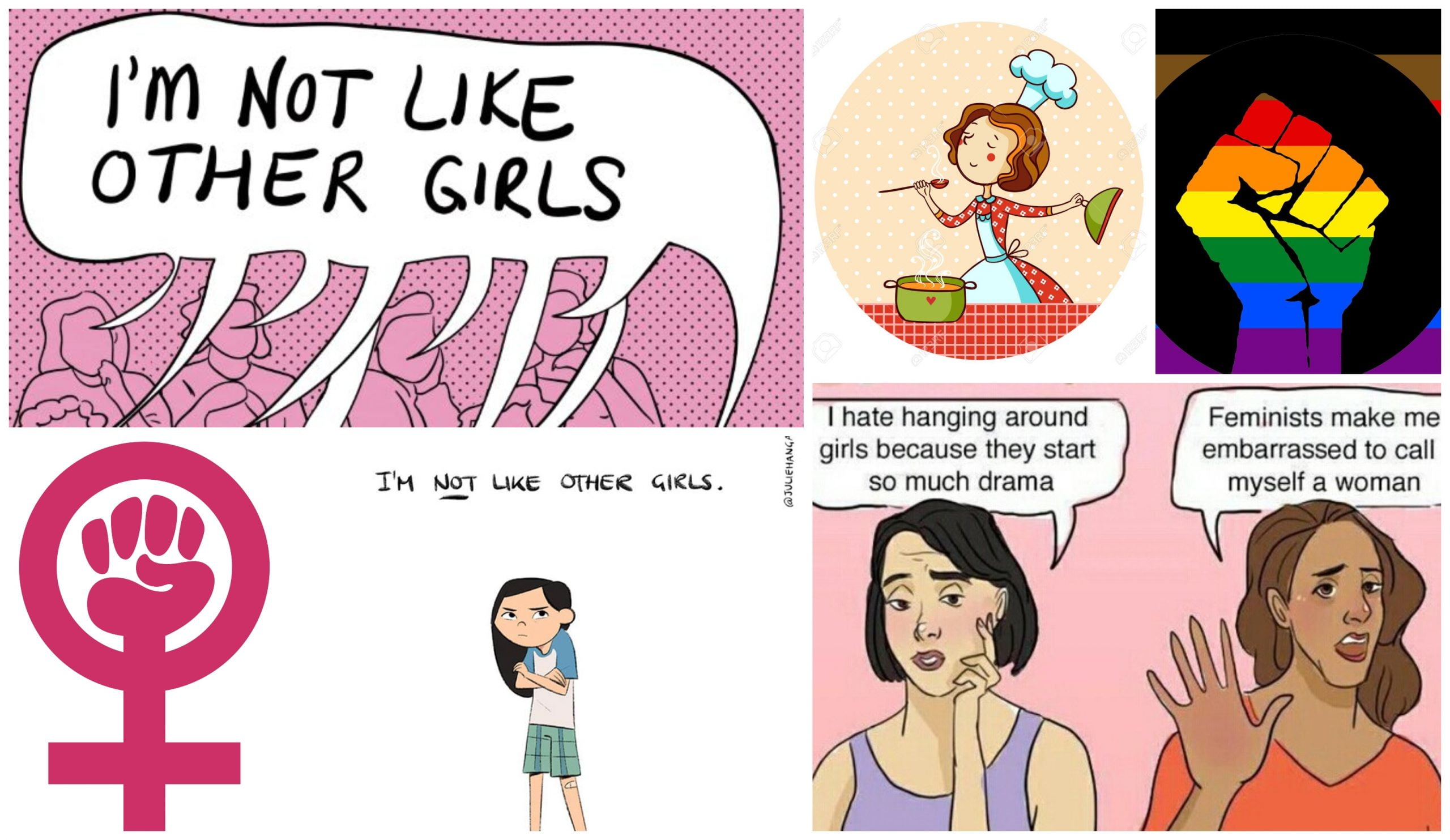




Thank you for this post , I think I found such behaviors in myself too but I will unlearn them .